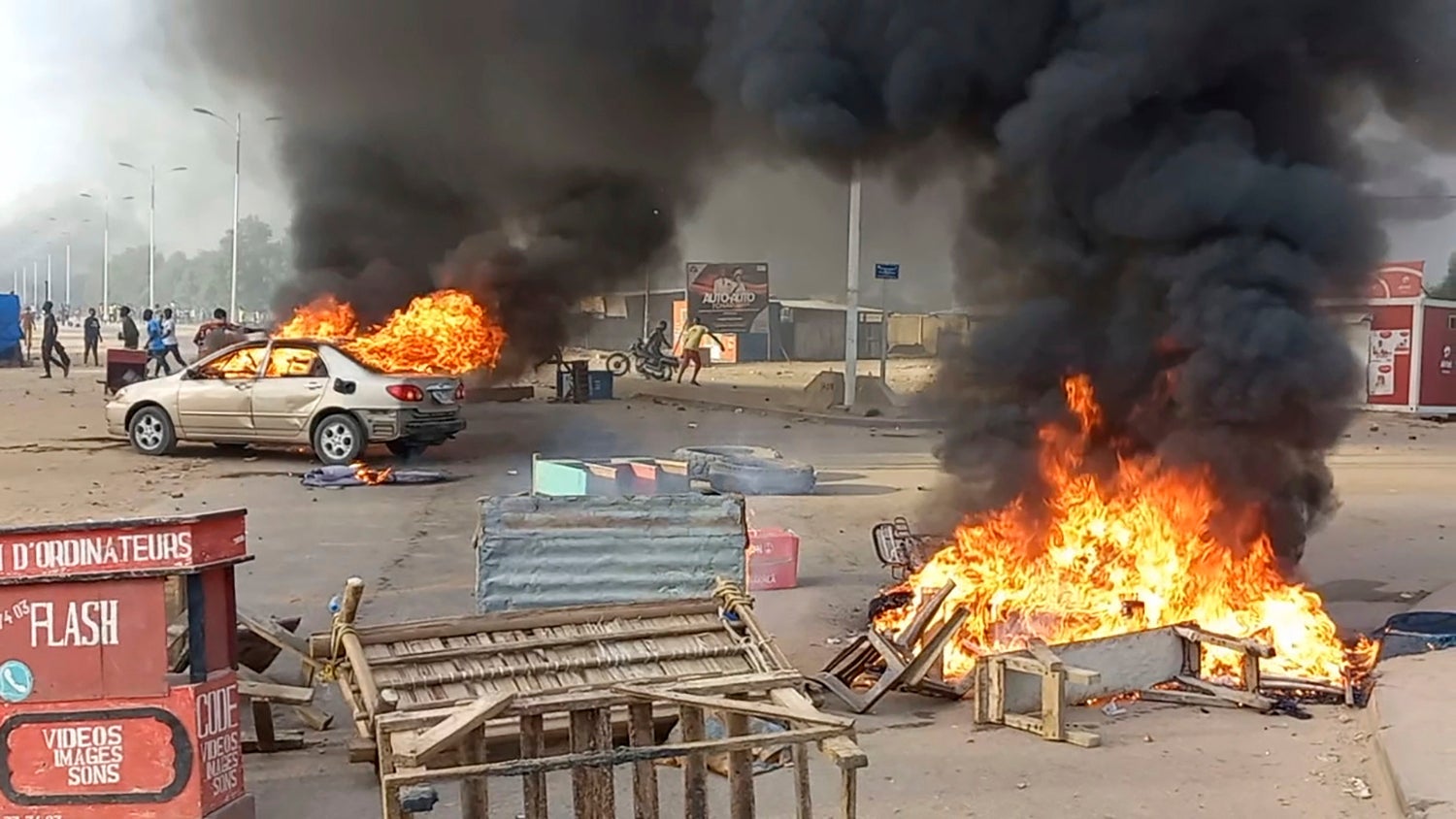Chad's military was responsible for deaths of detainees after protests in 2022, a rights group says
Human Rights Watch says Chad’s military was responsible for the deaths of several detainees who were arrested after protests in October 2022

Your support helps us to tell the story
From reproductive rights to climate change to Big Tech, The Independent is on the ground when the story is developing. Whether it's investigating the financials of Elon Musk's pro-Trump PAC or producing our latest documentary, 'The A Word', which shines a light on the American women fighting for reproductive rights, we know how important it is to parse out the facts from the messaging.
At such a critical moment in US history, we need reporters on the ground. Your donation allows us to keep sending journalists to speak to both sides of the story.
The Independent is trusted by Americans across the entire political spectrum. And unlike many other quality news outlets, we choose not to lock Americans out of our reporting and analysis with paywalls. We believe quality journalism should be available to everyone, paid for by those who can afford it.
Your support makes all the difference.Chad's military was responsible for the deaths of several detainees arrested following protests in October 2022, Human Rights Watch said Tuesday.
At least four people died en route to Koro Toro prison and six others died there, and it was not clear where another man died, the group said in its report, adding that the real toll was likely much higher.
At the time, security forces in the central African nation fired live ammunition, killing at least 60 people during demonstrations against interim leader Mahamat Deby Itno’s two-year extension of power. The unrest was unprecedented in Chad, which saw little public dissent during the regime of Deby Itno’s father, who ruled for more than three decades until his assassination in 2021.
Hundreds were detained and taken to Koro Toro, about 600 kilometers (around 370 miles) from N'djamena, the capital.
Human Rights Watch called on Chadian authorities, the African Union and United Nations bodies to investigate what it called unlawful detentions, ill treatment at the prison, and deaths in custody.
“The Chadian government must act decisively to address the impunity for these abuses,” said Lewis Mudge, central Africa director at Human Rights Watch, in a statement.
Detainees were unlawfully detained, mistreated and denied basic supplies during the two- to three-day transit to the prison, the report said. Some died along the way.
“The bodies of those who died were thrown out of the trucks,” said a former detainee, whose name was not released, quoted in the report.
Koro Toro prison operates with military oversight. According to the report, its day-to-day administration was delegated to prisoners having links to the militant group Boko Haram, who punished and beat other detainees.
At least hundreds were chained up with iron rods attached to their ankles for up to several weeks, the report said. Some detainees were subjected to prolonged solitary confinement — a form of torture — and forced labor.
“Chadian military officials oversee a prison in which abuse runs rampant,” Mudge said.
Human Rights Watch called for one of the main buildings at Koro Toro to be closed, describing it as unfit for use. The group also urged that the remains of those who died be returned to their families for burial.
The Chadian government maintains that the 2022 protests amounted to an insurrection and that, given the seriousness, detention at Koro Toro was not extreme.
In a July 2023 letter to Human Rights Watch, Chad’s justice minister said there was “no evidence relating to the violation of human rights related to (the) transfer or detention in Koro-Toro prison.”
Larry Ahmat Haroun, a Chadian activist who was jailed after the elections and freed in June, told The Associated Press that Koro Toro is one of the most dangerous prisons in Chad.
“I’ve seen prisoners who were wounded by bullets left without any care or treatment. People get tortured too," he said, adding that there is no access to phones or visits.
Chad is a part of an African region rocked in recent years by military coups. The current president, Deby Itno, was elected May 6 in a long-delayed vote marred by allegations of the elimination of political opponents, which authorities have denied.
___
Follow AP’s Africa coverage at: https://apnews.com/hub/africa